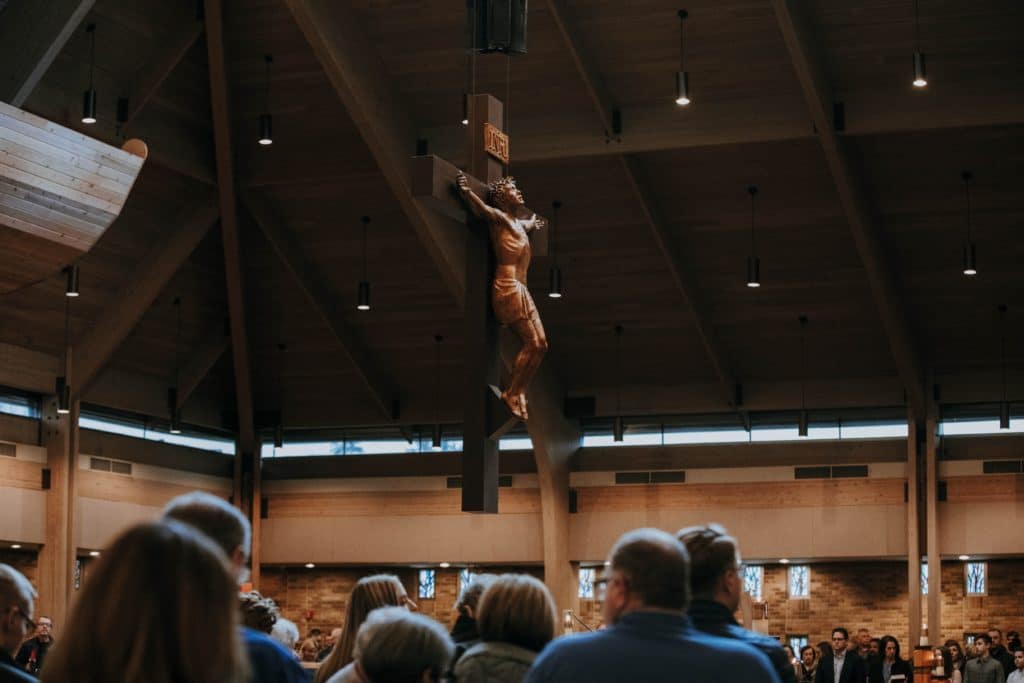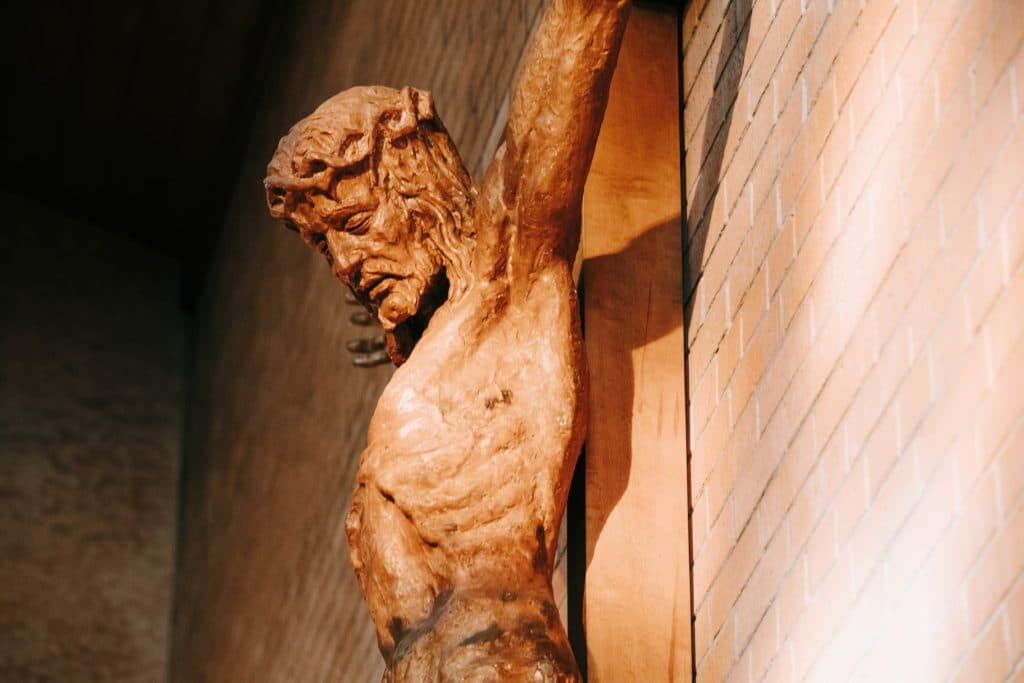On Holy Saturday — the day Christ lies in the tomb — the Church places this remarkable ancient homily before the faithful in the Divine Office. Some scholars believe that the homily was composed by Melito, bishop of Sardis, who died circa 180, because it is similar to Melito’s renowned “Homily on the Passover.” But in fact, we don’t know who the author is.
The Apostles’ Creed professes that Christ “descended into hell” after dying on the cross. This homily tells the story of Christ’s triumphal descent through a dramatic rendering of Christ’s appearance in the place of the dead where he encounters Adam and Eve, and all the faithful, who are waiting for deliverance.
The homily is full of paradox: The Son of God has died in the flesh and now “sleeps” in the tomb. But the One who is “asleep” enters the realm of the dead in order to “wake” the dead from sleep and lead them up to the dwelling place of God.
Holy Saturday is not just the day that we wait quietly and mournfully with Christ in the tomb. We also recognize that on this day Christ also descended to the place of the dead and rescued all faithful souls, bringing them into the full glory of His Father’s kingdom. Reflecting on this excerpt from the homily can help us focus on this divine reality.
The Lord’s Descent Into the Underworld
– Homily Author Unknown
“Something strange is happening — there is a great silence on earth today, a great silence and stillness. The whole earth keeps silence because the King is asleep. The earth trembled and is still because God has fallen asleep in the flesh and He has raised up all who have slept ever since the world began. God has died in the flesh and hell trembles with fear.
He has gone to search for our first parent, as for a lost sheep. Greatly desiring to visit those who live in darkness and in the shadow of death (Luke 1:79), He has gone to free from sorrow the captives Adam and Eve, He who is both God and the son of Eve.
The Lord approached them bearing the cross, the weapon that had won Him the victory. At the sight of Him, Adam, the first man He had created, struck his breast in terror and cried out to everyone: ‘My Lord be with you all.’ Christ answered him: ‘And with your spirit.’ He took him by the hand and raised him up, saying: ‘Awake, O sleeper, and rise from the dead, and Christ will give you light.’ (Ephesians 5:14)
‘I am your God, who for your sake have become your son. Out of love for you and for your descendants I now by my own authority command all who are held in bondage to come forth, all who are in darkness to be enlightened, all who are sleeping to arise. I order you, O sleeper, to awake. I did not create you to be held a prisoner in hell. Rise from the dead, for I am the life of the dead. Rise up, work of my hands, you who were created in my image. Rise, let us leave this place, for you are in me and I am in you; together we form only one person and we cannot be separated.


